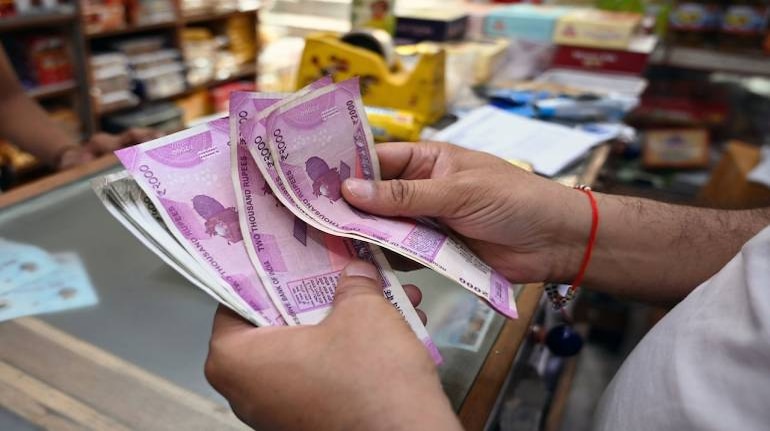
Some proprietary trading firms are asking their `client traders’ to use the hawala route to transfer cash if they want their deposits refunded, or if they want to continue to access the firm’s trading terminals, Moneycontrol has learned from two traders.
Proprietary stock brokers are only supposed to use their own capital and employees to buy and sell shares/derivatives, unlike regular brokers who trade on behalf of clients.
Moneycontrol had reported on September 7 how some proprietary broking firms were sidestepping SEBI regulations by illegally letting out their terminals to clients by passing them off as employees. As they are called in market parlance, the prop brokers engage traders as ‘team leads’ and then ask them to hire more traders below them. Every trader puts up a certain amount as a deposit, against which the broker offers funds for a cost, which allows the traders to take positions varying from 5 to 15 times their initial deposit.
Also read: MC Investigates: In low-volatility market, illegal renting out of prop accounts goes a step further
This practice has been going on for many months, but of late there have been instances of differences between the traders and brokers. Some of the traders have taken to Twitter alleging that the brokers were not refunding their deposits.
One of the traders Moneycontrol spoke to said he had made a cheque payment of the deposit to a sister concern of the prop broking firm. A part of the deposit is shown as the fixed salary and deducted from the deposit the trader puts up. Also, the losses suffered by the trader are deducted from the deposit.
When he decided to part ways with the broker over a disagreement on the initially agreed-upon terms and asked for the remainder of his deposit, he was asked to pay the deducted amount in cash, so that a cheque could be issued for the full amount that had been put up as a deposit.
For instance, if a trader had put up a deposit of Rs 1.25 crore and Rs 25 lakh had been used up as salary / losses, then instead of refunding the remaining Rs 1 crore by cheque, the broker would ask the trader to pay Rs 25 lakh in cash so that the sister concern could issue a cheque for the entire Rs 1.25 crore. This is so that the books of the brokerage’s sister concern, to which the trader had paid the initial Rs 1.25 crore to get access to the prop book, look clean and there are no pending dues in it.
“This makes it a clean transaction, which will not catch the attention of tax authorities or the regulators if an audit were to be done,” said the trader.
Further, with the NSE and SEBI becoming aware of such illegal operations, many brokers are now demanding that even the initial payment be made in cash.
Brokers are asking for the cash to be handed over through the ‘hawala’ route that uses the angadiya system.
How is it done?
A trader, who had such an arrangement with a brokerage, said he had been asked to transfer a few lakhs like this.
Anonymity and secrecy is key in hawala transactions, therefore the players identify each other with a Rs 10 currency note.
The hawala operators send a photo of the note to the trader who has to transfer the money. The trader would then hand over the money to a courier, typically a shop owner, who would be also carrying a photo of the same note.
Also read: Sebi cracks the whip on AIF-structures helping regulated lenders hide stressed assets
“Once it reaches the destination, the ultimate receiver of the money would need to show the original note,” said the trader, explaining the system.
The trader refused to do the cash transaction because then he would have no trace of the money he had paid the brokerage, in case of a dispute.
After the trader refused to do the cash transfer, other brokerages he approached did not allow him to access their prop terminals either.
Thus, if one brokerage learns that a trader is unwilling to participate in a hawala transaction, it tells a network of brokerages to keep a trader out. That can be a powerful bargaining chip for brokerages to coerce traders into this paperless hawala arrangement.
“I asked several brokerages why I was not being given access to the prop terminal. They all said that there were compliance issues. But when I applied through another person’s name, I was given access,” said the trader.
Discover the latest business news, Sensex, and Nifty updates. Obtain Personal Finance insights, tax queries, and expert opinions on Moneycontrol or download the Moneycontrol App to stay updated!